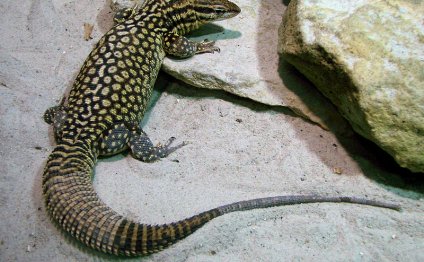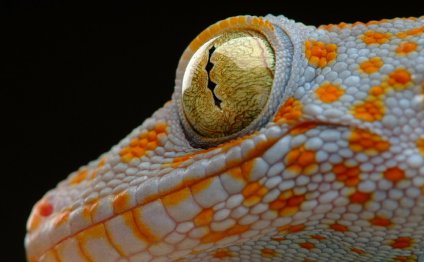
Monitor lizards pets

Description
The Dumeril’s Monitor sports a “typical” monitor build and averages 3-4 feet in length, with some individuals approaching 5 feet. Hatchlings and very young individuals are brilliantly clad in black and orange. Adults are attractively-marked in various shades of brown and tan. Extremely sharp claws (even by monitor standards!) assist it in climbing.
Range
The Dumeril’s Monitor is found across a huge range that extends from southern Myanmar and Thailand through western Malaysia and much of Indonesia to Singapore. The population on Singapore was long believed extinct, with no reported sightings since 1935. However, a single individual was collected in the island’s Nee Soon Swamp Forest in 2008, spurring hopes that it is still hanging on there.

Habitat
The Dumeril’s Monitor inhabits lowland forests, coastal mangrove swamps and swamp forests. Village and farm outskirts are sometimes colonized, but the effects of habitat development on this species have not been studied. It is at times highly arboreal, but also frequently forages on the ground and in the shallows of rivers and swamps.
Enclosure
Like most of their relatives, Dumeril’s Monitors are quite active, and will not thrive in close quarters. Adults require custom-built cages measuring at least 6 x 4 x 6 feet.
Cypress mulch or eucalyptus bark may be used as a substrate. Shy by nature, they are best provided with numerous caves, cork bark rolls and hollow logs in which to shelter, and stout climbing branches for climbing. Some individuals prefer sheltering above ground (wild individuals reportedly utilize tree hollows), so a cork bark roll or large nest box positioned among the branches would be ideal. A water bowl large enough for soaking should always be available…the ideal Dumeril’s enclosure would feature a large, drainable pool.
The cage should be located in a quiet, undisturbed area of the home, as Dumeril’s Monitors are very aware of their surroundings, and easily stressed.
Temperature
Dumeril’s Monitors fare best when afforded a temperature gradient of 78-85 F; nighttime temperatures should not dip below 75 F. The basking site should be kept at 110-120 F. Incandescent bulbs may be used by day; ceramic heaters or red/black reptile “night bulbs” are useful after dark.
Provide your monitor with the largest home possible, so that a thermal gradient (areas of different temperatures) can be established. Thermal gradients, critical to good health, allow reptiles to regulate their body temperature by moving between hot and cooler areas. In small or poorly ventilated enclosures, the entire area soon takes on the basking site temperature.

Humidity
Humidity should average 70-85%, but dry areas must be available.
Light
While there is some evidence that UVB exposure may not be essential if the animal is fed properly, I always provide it to monitors in zoo exhibits and at home. In most situations, UVB exposure is the safest option. If a florescent bulb is used (Zoo Med bulbs are ideal), be sure that your pet can bask within 6-12 inches of it. Mercury vapor bulbs broadcast UVB over greater distances, and provide beneficial UVA radiation as well.
RELATED VIDEO



Share this Post
Related posts
Colorful lizard
A very large species of chameleon that is endemic to forests in eastern and northern Madagascar. They reach up to 68 cm (27…
Read MoreBig lizards pets
Northern alligator lizards can live for 10 years, meaning they are a fairly long-term commitment. They re not really a hands-on…
Read More











